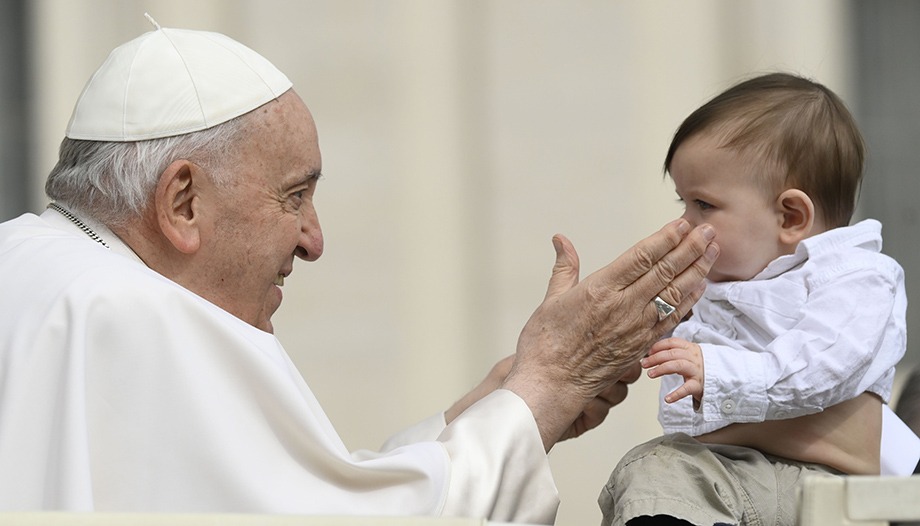The euphoria caused by the election of the first pontiff from the American continent was fueled by signs that some interpreted as the announcement of radical changes in the Church.
Here are 10 of the actions that many commentators consider among the most relevant of the Argentine pope, who died at 7:30 a.m. on April 21.
1. Emphasis on social justice
He has consistently promoted measures to combat poverty and inequality, sometimes criticizing the excesses of capitalism. He has been a voice of support for the thousands of refugees and migrants, promoting and defending their rights and calling on governments to provide them with protection and assistance.
2. Efforts to combat sexual abuse
In continuity with his predecessor, he has taken steps to address this drama. In 2019, the pope held a summit on the subject and, in 2020, he introduced new rules making it mandatory to report allegations of abuse to civil authorities.
3. Curia reform
With the promulgation of the apostolic constitution Prædicate Evangelium (19-III-2023), on the Roman Curia and its service to the Church in the world, restructured this central organism of the Church to emphasize its missionary dimension; among other things, it sought the unification of some dicasteries (Vatican ministries) to optimize economic resources and reduce bureaucracy.
4. Reforms in finance
He opted for the creation of a new economic secretariat; he has also been unceasing in his efforts to promote transparency and accountability in financial matters. The most recent action involves a rescript in which it eliminates economic facilities for top-level prelates working in the curia who benefit from apartment rentals and special rates in Vatican lodgings.
5. Pandemic COVID-19
He launched several messages of a spiritual nature and also messages to governments and scientists, encouraging them to show solidarity in search of answers and concrete actions to overcome the crisis, emphasizing the importance of caring for the most vulnerable in society.
In some countries the situation posed a challenge to the human right to religious freedom.
6. Papal documents
He has presented three encyclicals of great relevance: Lumen Fidei (2013), completing the trilogy of encyclicals on the theological virtues (faith, hope, charity) initiated by Benedict XVI; Laudato si (2015), the first papal document devoted exclusively to environmental issues; and Fratelli tutti (2020), presenting a reflection "so that, in the face of various and current forms of eliminating or ignoring others, we may be able to react with a new dream of fraternity and social friendship that does not remain in words".
He has signed five apostolic exhortations in which he addresses important and topical issues for the Church such as: the proclamation of the Gospel in today's world (Evangelii gaudium24-XI-2013); love in the family, its problems, challenges and possible solutions (Amoris laetitia, 19-III-2016); the call to holiness in the contemporary world and in the midst of ordinary activities (Gaudete et exsultate, 19-III-2018); youth, encouraging them to "grow in holiness and commitment to one's vocation" (Christus vivit25-III-2019); and the reality and problems of the Amazon (Dear Amazonia, 2-II-2020).
7. Appeals for peace
It is dealing with political and war situations around the world. With the collaboration of the Secretary of State's Office, responsible for the Vatican diplomacyThe Church has been present in various diplomatic efforts related to the political situations in the region. Nicaragua and Venezuela, as well as in the ongoing military conflict between Russia and Ukraine.
He has called for dialogue, the search for peaceful solutions, the protection of human rights and democratic institutions in these and other conflicts.
8. Synodality and the German Synodal Way
In order for Catholics to jointly discern how to move forward to be a more synodal Church in the long term, he has convened a synod on synodality ("walking together"), with which it tries to put into practice one of the pending matters foreseen by the Second Vatican Council.
At the same time, he has called for the German synod, convened with the intention of discussing and finding solutions to various issues facing the Church in Germany, Among them, issues such as celibacy, the ordination of women and sexual morality, he addresses these issues from the perspective of current Catholic doctrine and morality, not from the margins of it.
In general, the Catholic Church's stance toward the German synod is one of caution and dialogue, emphasizing the need to balance local concerns with the broader unity and fidelity of the Church.
9. Dissemination of reconciliation
He is one of the pontiffs who has most spread the sacrament of reconciliation. He convoked the Extraordinary Jubilee of Mercy, which took place from November 29, 2015 to November 20, 2016.
We have seen him confess and go to confession, and he has developed a pastoral care of confession that is gradually spreading throughout the world.
10. Dialogue with other religions
He strives to promote dialogue and understanding between the Catholic Church and other religions, particularly Islam.
He has made several country travel predominantly Muslim and has spoken out against religious extremism.








